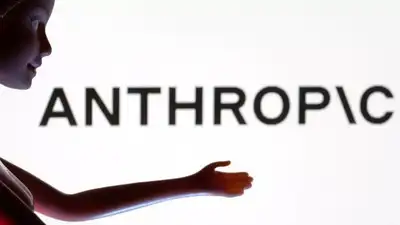ARTICLE AD BOX

AI startup
Anthropic
has agreed to pay at least $1.5 billion to settle a class-action lawsuit with a group of authors. The settlement, which was filed this week, addresses claims that the Amazon and Google-backed AI startup illegally used the authors' books to train its AI models. The agreement includes a payment of approximately $3,000 per book, plus interest, and requires Anthropic to destroy the datasets containing the pirated material. Both publishers and AI companies have closely watched this settlement as a potential benchmark for copyright infringement in the AI era. If approved, it would be the largest publicly reported copyright recovery in history. The case highlights the ongoing legal challenges faced by AI companies over the use of copyrighted material to train their systems. In a statement to Bloomberg, an Anthropic spokesperson said: “We remain committed to developing safe AI systems that help people and organisations extend their capabilities, advance scientific discovery, and solve complex problems.”In a court filing, Anthropic stated that it faced “inordinate pressure” to reach an agreement, as going to trial carried the risk of potentially devastating damages that could have reached up to $1 trillion.
What the lawsuit said against Anthropic’s use of copyrighted material for AI training
The lawsuit, filed in the US District Court for the Northern District of California, was initiated last year by authors Andrea Bartz, Charles Graeber and Kirk Wallace Johnson. According to the filing, the suit claimed Anthropic engaged in “large-scale copyright infringement by downloading and commercially exploiting books that it obtained from allegedly pirated datasets.”
In June, a judge determined that Anthropic’s use of books to train its AI models qualified as “fair use,” but still ordered a trial to examine whether the company infringed copyright by sourcing works from the databases Library Genesis and Pirate Library Mirror. As noted in this week’s filing, the trial was scheduled to begin in December.In a statement, Justin Nelson, the attorney for the plaintiffs, said: “This settlement sends a powerful message to AI companies and creators alike that taking copyrighted works from these pirate websites is wrong.”This settlement is one of the first to emerge from the many copyright lawsuits brought against AI companies such as OpenAI, Facebook-parent Meta and Midjourney. These companies are also accused of misusing proprietary online content.
Made in India Space Chip: Vikram-32 Explained



.png)
.png)
.png)
















 3 days ago
9
3 days ago
9







 English (US) ·
English (US) ·